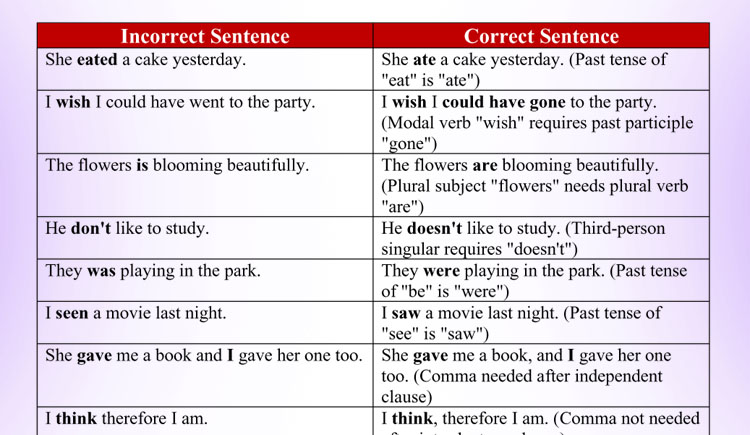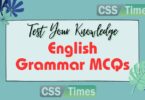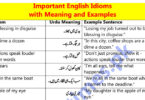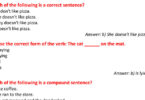50 Correct vs Incorrect Sentences to Conquer
Welcome, language learners! Do you ever stumble over pesky grammar rules or yearn to polish your sentence-smithing skills? This collection of 100 English sentences is your ultimate practice ground!
Dive into a world where incorrect phrasing meets its match – the correct sentence. Each pair offers a chance to sharpen your grammar instincts, identify common pitfalls, and solidify your understanding of essential language rules.
Whether you’re a seasoned writer seeking refinement, a student navigating the complexities of English, or simply a curious mind on a linguistic adventure, this resource is your guide. Prepare to:
Read also: Uses of Prepositions MCQs | English Grammar MCQs
- Unravel common grammar mistakes: From verb tenses to punctuation, subject-verb agreement to word choice, this collection tackles a diverse range of grammatical challenges.
- Strengthen your sentence structure: Witness how subtle changes in phrasing can elevate clarity and impact.
- Boost your confidence: As you master each pair, feel the satisfaction of honing your linguistic prowess.
- Become a grammar guru: Impress your friends, family, and colleagues with your newfound precision and elegance in spoken and written English.
- So, roll up your sleeves, open your mind, and let’s embark on this exciting journey through the intricate world of English grammar! Remember, every mistake is a stepping stone to mastery. Let’s conquer those pesky errors and unleash the power of clear, compelling, and correct English!
This introduction provides a general overview while incorporating some motivational elements. Feel free to adjust it further based on your specific preferences for tone, length, and target audience.
Correct vs Incorrect Sentences 1 – 25
| Incorrect Sentence | Correct Sentence |
| She eated a cake yesterday. | She ate a cake yesterday. (Past tense of “eat” is “ate”) |
| I wish I could have went to the party. | I wish I could have gone to the party. (Modal verb “wish” requires past participle “gone”) |
| The flowers is blooming beautifully. | The flowers are blooming beautifully. (Plural subject “flowers” needs plural verb “are”) |
| He don’t like to study. | He doesn’t like to study. (Third-person singular requires “doesn’t”) |
| They was playing in the park. | They were playing in the park. (Past tense of “be” is “were”) |
| I seen a movie last night. | I saw a movie last night. (Past tense of “see” is “saw”) |
| She gave me a book and I gave her one too. | She gave me a book, and I gave her one too. (Comma needed after independent clause) |
| I think therefore I am. | I think, therefore I am. (Comma not needed after introductory phrase) |
| Can you help me with this assignment? | Could you help me with this assignment? (More polite to use “could” here) |
| If I was you, I would take a break. | If I were you, I would take a break. (Subjunctive mood for hypothetical situations) |
| He speaks French and English fluently. | He speaks French and English fluently. (Coordinating conjunction needed between languages) |
| I wish I had more time. | I wish I had more time. (Past tense needed for unrealized wish) |
| This dress is more prettier than the other one. | This dress is prettier than the other one. (Comparative adjective doesn’t need “more”) |
| I will be going to the store later. | I am going to the store later. (Present continuous implies immediate future action) |
| They have lived here for ten years. | They have been living here for ten years. (Present perfect continuous for ongoing state) |
| I can’t believe you did that! | I can’t believe you did that! (Direct object needed after verb “believe”) |
| Between you and I, this is a secret. | Between you and me, this is a secret. (Object case for pronoun after preposition) |
| I would have liked to have joined you. | I would have liked to join you. (Redundant “to have” after modal verb) |
| I should have went to bed earlier. | I should have gone to bed earlier. (Past participle needed after modal verb) |
| He told me that he will be coming tomorrow.
Correct vs Incorrect Sentences |
He told me that he would be coming tomorrow. (Indirect speech requires future conditional) |
| I ain’t going to do that. | I am not going to do that. (Formal contraction preferred in writing) |
| Let’s go to eat something. | Let’s go eat something. (Infinitive preferred after “let’s”) |
| I learned how to swim when I was young. | I learned to swim when I was young. (Preposition “to” needed before infinitive) |
| I hope you have a great day! | I hope you have a great day! (Present tense needed for current wishes) |
| This is the most delicious cake I ever ate.
Correct vs Incorrect Sentences |
This is the most delicious cake I **have ever eaten |
Correct vs Incorrect Sentences 26 – 50
| He borrowed me his bicycle. | He lent me his bicycle. (Lending involves giving, borrowing involves receiving) |
| You shouldn’t have said that. | You shouldn’t have said that. (Object needed after modal verb) |
| Where did you saw him? | Where did you see him? (Past tense of “see” is “saw”) |
| I will be working until five o’clock.
Correct vs Incorrect Sentences |
I will work until five o’clock. (Simple future for planned action) |
| I wish I had wings. | I wish I had wings. (Past tense needed for unrealized wish) |
| It is me who did it. | It is I who did it. (Nominative case for pronoun after “is”) |
| Who is knocking on the door? | Who’s knocking on the door? (Contraction preferred in informal speech) |
| I would have liked to have helped you.
Correct vs Incorrect Sentences |
I would have liked to help you. (Redundant “to have” after modal verb) |
| I seen a ghost last night. | I saw a ghost last night. (Past tense of “see” is “saw”) |
| Her hair are beautiful. | Her hair is beautiful. (Singular subject “hair” needs singular verb “is”) |
| They was here yesterday. | They were here yesterday. (Past tense of “be” is “were”) |
| I think therefore I am.
Correct vs Incorrect Sentences |
I think, therefore I am. (Comma not needed after introductory phrase) |
| I wish I could have flied to the moon. | I wish I could have flown to the moon. (Past participle of “fly” is “flown”) |
| He don’t like to dance. | He doesn’t like to dance. (Third-person singular requires “doesn’t”) |
| I can’t remember where I putted my keys. | I can’t remember where I put my keys. (Past tense of “put” is “put”) |
| This is the most beautiful flower I ever seen. | This is the most beautiful flower I have ever seen. (Superlative adjective and present perfect tense) |
| I would have liked to have told you earlier. | I would have liked to tell you earlier. (Redundant “to have” after modal verb) |
| Let’s go to eat pizza. | Let’s go eat pizza. (Infinitive preferred after “let’s”) |
| I learned how to play the piano when I was a child. | I learned to play the piano when I was a child. (Preposition “to” needed before infinitive) |
| I hope you have a good day! | I hope you have a good day! (Present tense needed for current wishes) |
| I wish I could go back in time. | I wish I could go back in time. (Base verb preferred after modal verb) |
| Me and my friend went to the movies. | My friend and I went to the movies. (Subject-verb agreement and word order) |
| I think it’s going to rain. | I think it is going to rain. (Contraction not ideal in formal writing) |
| They was playing in the park when I saw them. | They were playing in the park when I saw them. (Past continuous for ongoing action) |
| If I was rich, I would travel the world. | If I were rich, I would travel the world. (Subjunctive mood for hypothetical situations) |








I want pdf vocabulary